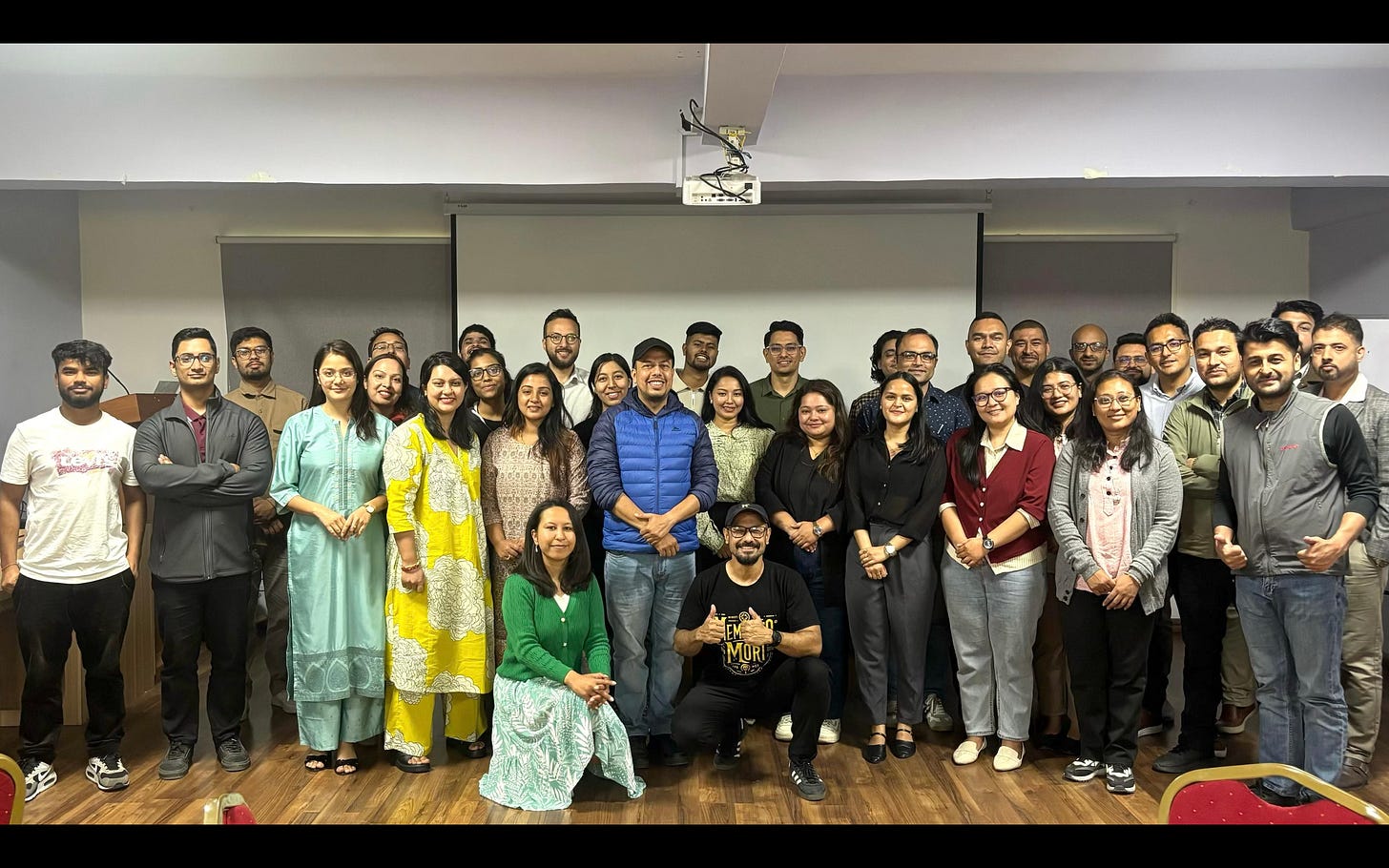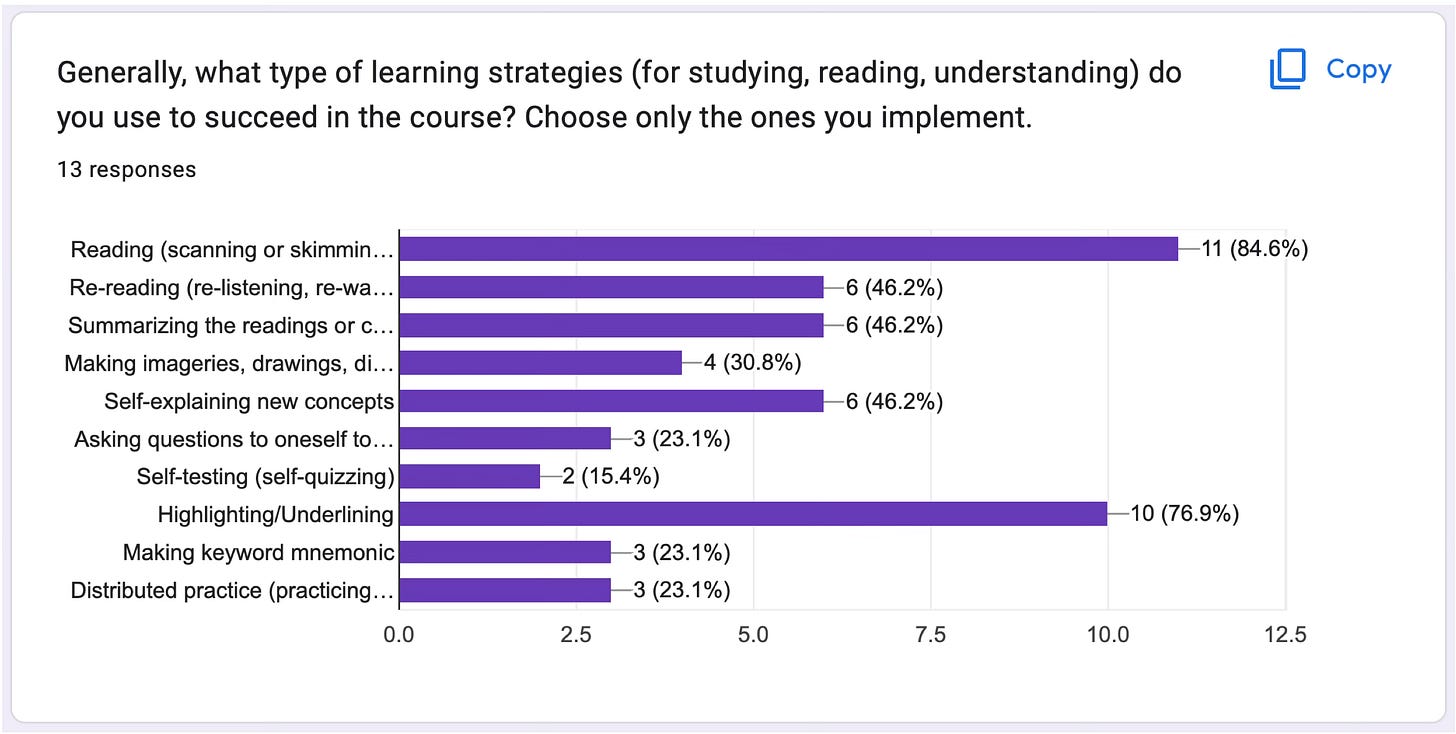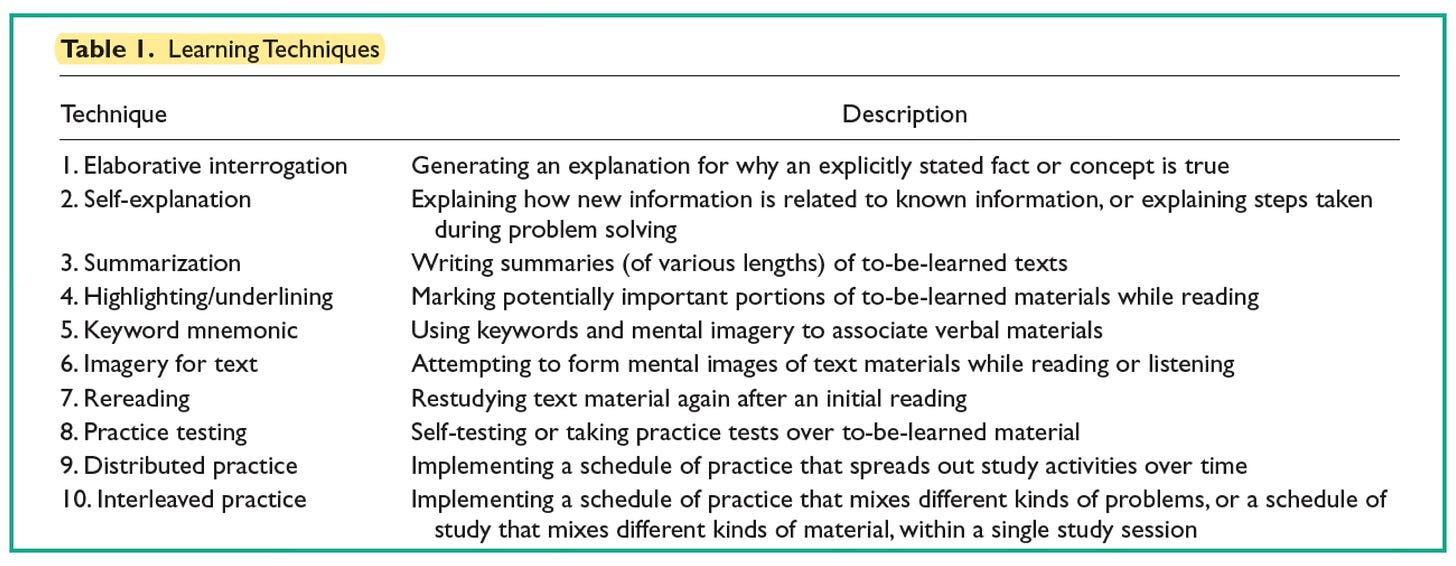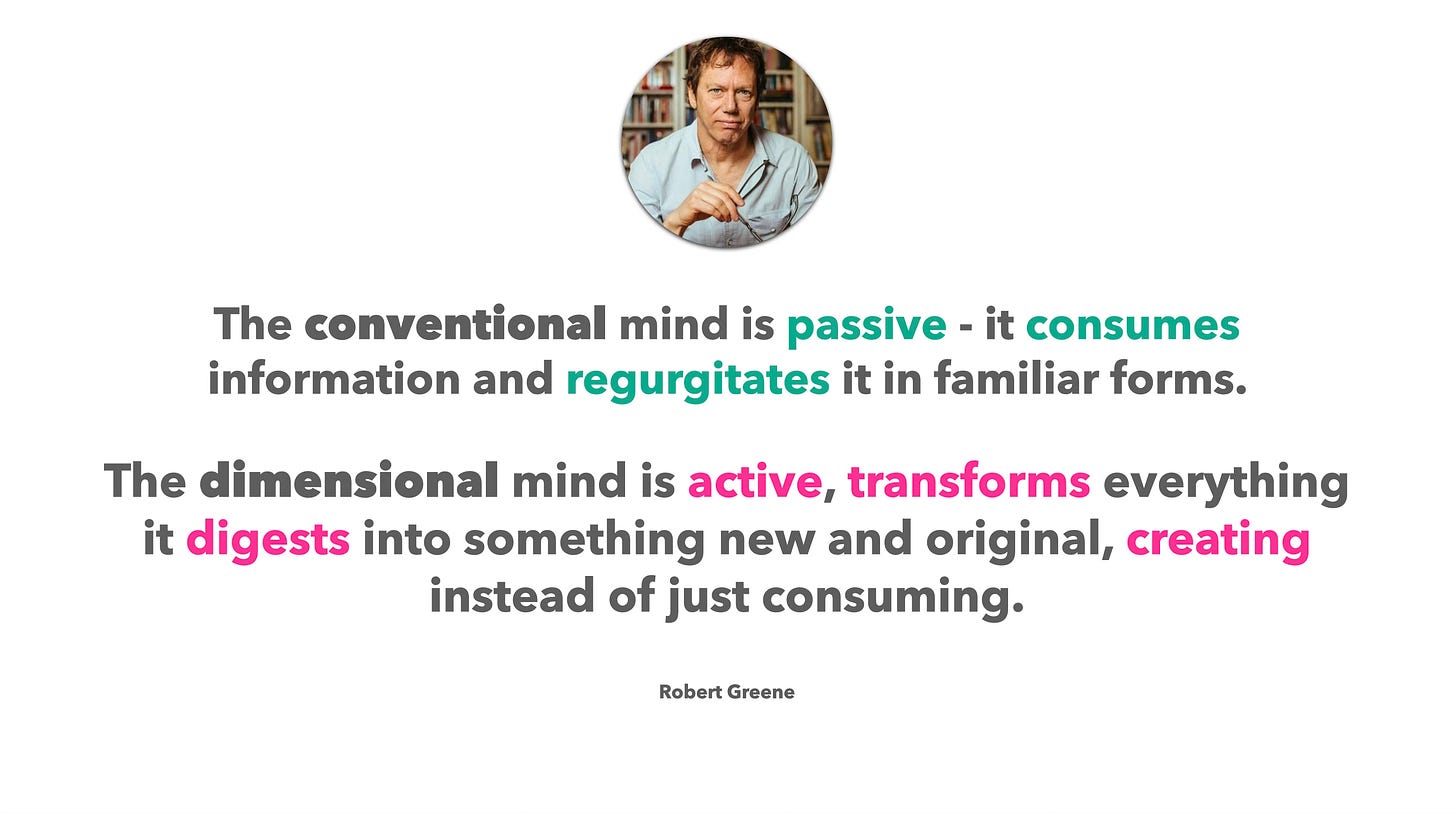Effective Learning Strategies
Workshop for Teachers
(I'm sharing a quick summary of this workshop conducted for the faculty members of King's College, Nepal. Held on April 29, 2025. The workshop was participated by around 30 faculty members and teaching assistants of graduate and undergraduate levels.)
1. The Premise of the Workshop
Here's the email I had sent to the faculty members to set the context.
We teach. But do our students learn?
This is a question that bothers every teacher who has been trying their best to ensure that students are learning effectively.
The system at King's College is very unique. We have a session of 2 months, and with 2 subjects. In this, students are expected to learn new knowledge and skills, understand them, implement them in projects, and also retain them in their memory so that they can apply their learning in a new unknown context.
In this fast-paced teaching and learning model, we are faced with a couple of striking questions.
Are students retaining what they learned in the class?
Are students able to better manage their learning by using effective learning strategies or are they totally relying on chatGPT?
We’ve heard this Nepali proverb: खोई गाई? खोलाले बगायो। खोई खोला? सु…उ….क्यो !!!
Similar to the proverbial river that just vanished, what if learning too vanishes into thin air once our students finish their 2 month session and move into another?
Students spend years and years learning and studying. But when they are expected to implement their learning in a new context, they can't. Evidently, the gap is huge.
So the million dollar question is: Why can’t the students retain their learning?
Out of several factors, as a teacher, I have observed two probable reasons:
ineffective learning strategies and
(over) reliance on AI for all sorts of assignments
We may not be able to stop them from using AI but we can help them understand how we can learn better and retain our learning better.
In this session, you will know and understand these:
a. Learning and retention is not just about ‘input’. It’s more about the ‘output’.
b. Learning is being able to take the information ‘in’, storing it in the long term memory, and then being able to take it ‘out’ when necessary.
c. The importance of teaching students to use effective learning strategies to break their illusion of learning.
We will share/discuss/learn at least 3 effective learning strategies, based on research. So that you can make the students aware of the illusions in learning and effective learning strategies to break those illusions.
2. The Workshop:
Almost all of the workshops that I conduct starts with me setting up an elaborated context. After a quick intro and session rules - which I target to finish within the first 5 mins - I started the 3 hour session with an open question for all the participants to think, write, and share.
"Why can't our students retain a lot of what they learned in the class?"
And it's always interesting to hear their responses. Some responses are aligned with the session theme and some responses go beyond. And that's where I find assumptions and misconceptions teachers too have regarding how learning happens, why memory is important, and why students don't learn.
From their responses, three things I would like to share here: Interest, Motivation, and Effort.
"Students come to the college with different interests... Students usually don't have the motivation to learn because they are here for the certificates only... Students don't want to put effort in learning because they want to have more fun..."
These were all excellent responses because these show how challenging teaching has become in the higher ed level. However, I brought everyone back to the theme of the session: effective learning strategies.
I shared them, "Let's give a benefit of doubt to our students and believe that they do want to learn. But they have certain illusions regarding learning that's holding them back and that they are not using effective learning strategies."
The three illusions most students have are:
For each illusion, we discussed over short cases and examples.
Now towards the core of the session:
After sharing these, I asked them the next question:
"List down all the learning strategies/techniques that you yourself used through out your student days in college?"
Highlighting while reading. Taking notes. Listening to the recordings. Watching videos related with the concepts. Summarizing. Explaining others. Reading before sleeping and reading again right after waking up. Underlining while reading. Writing and drawing/sketching. Copying notes... etc and etc.
Not surprising.
Few months ago, I had take a similar poll among students asking them to rank the learning strategies they implement.
Not surprising.
Two most used strategies: Reading (scanning or skimming) and Highlighting/Underlining.
I asked the teachers, "What if these were the least effective strategies?"
Next, I shared them a landmark research by Dunloskey et al titled "Improving students' learning with effective learning strategies" and showed them the 10 learning strategies mentioned in their work.
And, asked them again to rank these 10 strategies in three groups: High, Moderate, and Low in terms of effectiveness.
Interestingly, most teachers ranked Summarization, Imagery for text, and Highlighting, Underlining as highly effective strategies.
When I shared them what the research actually showed, a lot of them were intrigued.
Based on the article, here's the effectiveness of the strategies:
High: Practice Testing, Distributed practice
Moderate: Elaborative Interrogation, Self-explanation, Interleaved Practice
Low: Summarization, Re-reading, Highlighting/Underlining, Keyword Mnemonic, Imagery for text
Next, I showed them two broad premise of effective learning based on cognitive psychology.
First, Learning is not just about putting information IN the brain. Learning is also about taking information OUT of the brain when we need it. (paraphrased from Robert Bjork's interview)
Second, Memory is the residue of thoughts. (Dan Willingham)
Before moving into the learning strategies part, we spent around 30 more minutes on the ideas of how learning happens. And how we are constantly looking for clues in our memory that help us connect and makes sense of the new information. The main insight: What you already have inside determines how you will understand the outside world.
Now to the meat of the session:
First we dove into the idea of Retrieval Practice and why this is one of the most effective ways for retention of learning. Then, we explored the concept of Self-testing.
For both strategies, we did some exercises, quizzes, and video activity.
Unfortunately, due to a slight logistical hiccup, we didn't have enough time to dive into all 3 strategies that I had planned for.
I ended the session with a quick reflection from three of the participants and a group photo :)
3. My Own Reflection
Understanding how learning happens and implementing these learning strategies have changed the way I "consume" information these days. Earlier, I also used to think that learning was more about consuming information, the more the better. Yes, but now I also focus on retrieving those information, connecting them to my prior knowledge, and doing something with them. Because now I know, if I just passively consume information one after another, it's highly likely that I will forget everything and also will regret the time wasted reading or listening.
And, designing & conducting this workshop for teachers made me realize that even many teachers have a flawed perspective about how learning happens and effective learning strategies.
I hope they implement these ideas for their own personal learning and also take these into the classrooms, making students aware of the illusions of learning, and giving them these strategies to transform their learning.






Thank you so much sir